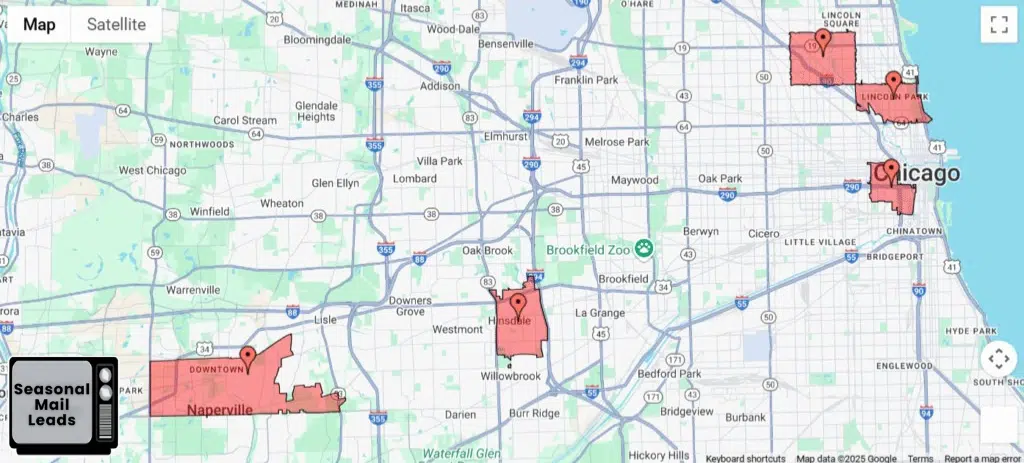
Understanding Compliance & Ethics in Legal Direct Mail Advertising – Building Trust and Security
Understanding Compliance & Ethics in Legal Direct Mail Advertising – Building Trust and Security
1. Introduction to Attorney Outreach Compliance
Effective Attorney Outreach Compliance is paramount within the strict framework of legal advertising rules. For Targeted Mailer Deployment, navigating these complexities isn’t just good practice—it’s crucial for sustainable Progressive Marketing Scaling and fortifying your Firm Credibility Shield. The legal landscape constantly shifts, with new regulations and interpretations emerging regularly. Without a deep understanding of these intricacies, even well-intentioned campaigns can inadvertently fall afoul of the rules, leading to severe consequences, undermining your Practice Growth Blueprint.
At Seasonal Mail Leads, we understand your primary focus is on providing exceptional legal services to your clients. Our role is to ensure your direct mail campaigns are fully compliant and ethically sound, fostering genuine Jurisprudence Lead Flow and safeguarding your firm’s reputation through proactive measures. We recognize that legal professionals face a unique challenge: how to effectively market their services to those who need them most, while upholding the highest standards of professional conduct and adhering to a labyrinth of advertising regulations.
This article will break down the key compliance areas, ethical considerations, and how our expertise provides peace of mind for your firm. We’ll delve into the specific rules governing legal direct mail, explore the ethical responsibilities that extend beyond mere legal adherence, and illustrate how a dedicated compliance partner like Seasonal Mail Leads can transform your marketing efforts from a potential liability into a powerful, reputation-enhancing asset, backed by Forensic Marketing Metrics and rigorous Campaign Efficacy Audits.
2. The Importance of Compliance in Legal Marketing
Compliance in legal marketing isn’t just about avoiding penalties; it’s about safeguarding the very foundation of your legal practice.
2.1. Protecting Your Firm Credibility Shield & License
Your firm’s reputation is its most valuable asset. In the legal profession, trust is paramount. Clients seek legal counsel based on confidence in a firm’s integrity and competence. Any breach of advertising regulations, whether intentional or not, can severely damage this trust. Disciplinary actions from state bar associations, even for seemingly minor infractions, can lead to public reprimands, suspensions, or even disbarment. Such actions not only halt your practice but also create a lasting negative perception that can be incredibly difficult to overcome. The public disclosure of disciplinary actions can erode client confidence, deter new business, and impact the morale of your entire team.
Moreover, every attorney holds a license to practice, a privilege granted by their state bar. This license comes with a profound responsibility to adhere to a strict code of professional conduct, which explicitly includes advertising. Non-compliance jeopardizes this license, threatening the very ability of attorneys to serve their clients and earn a livelihood. Protecting your firm’s reputation and your attorneys’ licenses is a non-negotiable aspect of responsible legal marketing.
2.2. Avoiding Fines & Disciplinary Actions in Attorney Outreach Compliance
The financial and professional repercussions of non-compliance can be devastating. State bar associations and other regulatory bodies have the authority to impose significant fines for violations of advertising rules. These penalties can range from thousands to hundreds of thousands of dollars, depending on the severity and frequency of the infractions.
Beyond monetary penalties, disciplinary actions can include:
Public Censure or Reprimand: A formal statement condemning the lawyer’s conduct, often published for public record.
Mandatory Continuing Legal Education (CLE): Requiring additional education in ethics or advertising rules.
Suspension: A temporary removal of the lawyer’s license to practice, ranging from a few months to several years.
Disbarment: The permanent revocation of a lawyer’s license, effectively ending their legal career.
The legal and administrative costs associated with defending against such actions can also be substantial, diverting valuable resources and time away from your practice. Proactive compliance is an investment that saves your firm from these potentially catastrophic outcomes.
2.3. Building Trust with Prospects for Niche Client Procurement
Ethical advertising is not just about avoiding what’s wrong; it’s about doing what’s right. When direct mail campaigns are crafted with integrity and transparency, they build genuine credibility with potential clients. Misleading or aggressive advertising tactics, conversely, create suspicion and erode trust from the outset.
Consider the perspective of a potential client. They are often in vulnerable or stressful situations, seeking reliable and trustworthy legal assistance. A direct mail piece that is clear, honest, and respectful stands out. It conveys professionalism and demonstrates that your firm prioritizes ethical conduct, fostering a sense of confidence that can lead to genuine connections and, ultimately, new client relationships essential for Niche Client Procurement. Trust is the cornerstone of the attorney-client relationship, and it begins with your first communication, including direct mail.
3. Key Compliance Areas for Targeted Mailer Deployment: A Comprehensive Overview
The regulatory landscape for legal advertising is multifaceted, encompassing rules from various authoritative bodies. Understanding these is critical for successful Targeted Mailer Deployment.
3.1. State Bar Association Rules for Ethical Practice Oversight
The most immediate and stringent regulations governing legal direct mail come from individual state bar associations. These rules are designed to protect the public and maintain the integrity of the legal profession. While variations exist between states, common themes include:
Disclosures & Disclaimers: Many states require specific disclosures to be prominently displayed on direct mail pieces. This can include statements like “ATTORNEY ADVERTISING” on the envelope and within the mailer itself. Disclaimers are often necessary for statements that might otherwise create unjustified expectations, such as “Past results do not guarantee future outcomes.” Some states even dictate the font size and color of these disclaimers. For example, some jurisdictions require “Advertisement” to be printed in 14-point red ink in the lower left-hand corner of the envelope.
Prohibitions on Misleading/Deceptive Language: A fundamental principle across all jurisdictions is the prohibition of false, misleading, or unsubstantiated claims. This includes:
Unjustified Expectations: Statements implying a guaranteed outcome or promising results that cannot be delivered.
Comparisons: Claims of being “the best” or “number one” without verifiable, objective evidence.
Misrepresentation of Qualifications: Falsely stating expertise or specialization without proper certification.
Dramatizations: If a mailer contains a dramatization, it often requires a clear and conspicuous statement, both at the beginning and end, explaining that it is a dramatization.
Client Testimonial Guidelines: While testimonials can be powerful, their use is heavily regulated. Rules often stipulate:
Testimonials must be genuine and not paid for.
They cannot be misleading or create unjustified expectations.
In some cases, the client’s name format may be specified, and proof of the client relationship might be requested by the bar.
If a testimonial references a specific outcome, a disclaimer about past results not guaranteeing future outcomes is typically required.
Solicitation Rules: While direct mail is generally permitted, direct “live person-to-person” solicitation (in-person, live phone, real-time electronic contact) for pecuniary gain is often prohibited unless the person contacted is a lawyer, has a prior relationship with the firm, or routinely uses the type of legal services offered. Direct mail is typically distinguished from these prohibited forms of solicitation as recipients can easily disregard written communications without immediate pressure. However, rules still apply to how the direct mail is presented to avoid coercion or harassment.
Seasonal Mail Leads maintains an up-to-date database of state-specific regulations, ensuring that every piece of mail we help you craft adheres to the precise requirements of the target jurisdiction, demonstrating our commitment to Ethical Practice Oversight.
3.2. Privacy Regulations for Jurisprudence Lead Flow
In an age of increasing data sensitivity, privacy regulations significantly impact how data for direct mail campaigns is sourced and used for Jurisprudence Lead Flow.
California Consumer Privacy Act (CCPA) / California Privacy Rights Act (CPRA): While primarily focused on digital data, the CCPA and CPRA (which expanded the CCPA) also have implications for direct mail, particularly concerning the sale or sharing of personal information used for targeting. Businesses that collect personal data from California residents and meet certain thresholds (e.g., annual gross revenue over $25 million, or buying/selling/sharing data of 100,000+ consumers) must comply.
Right to Opt-Out: Consumers have the right to opt-out of the sale or sharing of their personal information. If your firm purchases mailing lists, it’s crucial that these lists are compliant and that individuals who have opted out are suppressed.
Transparency: Businesses must inform consumers about their data practices, including what personal data is collected, its purpose, and whether it is sold or shared. While direct mail itself might not carry a privacy policy, the overall data practices of the firm and its lead providers must be transparent and compliant.
State-Specific Privacy Legislation: Beyond California, other states are enacting their own privacy laws(e.g., Virginia’s CDPA, Colorado’s CPA, Utah’s UCPA, Connecticut’s CTDPA). It’s crucial to understand how these varying state laws impact the acquisition and use of mailing lists to ensure nationwide compliance for your campaigns.
HIPAA (Health Insurance Portability and Accountability Act): While not directly related to legal advertising broadly, if your firm deals with health-related cases (e.g., medical malpractice, personal injury where medical records are involved), strict HIPAA guidelines apply to the handling and mailing of any protected health information (PHI). This reinforces the need for secure data practices, even for physical mail.
Seasonal Mail Leads prioritizes partnerships with data providers who adhere to rigorous privacy standardsand can provide lists that are ethically sourced and compliant with relevant privacy laws, including robust opt-out mechanisms, facilitating a healthy Jurisprudence Lead Flow.
3.3. FTC Guidelines for Campaign Efficacy Audits
The Federal Trade Commission (FTC) enforces general advertising fairness principles that apply across all industries, including legal services. The core principle is that all advertising claims must be truthful, non-deceptive, and substantiated, a key focus for Campaign Efficacy Audits.
Truth-in-Advertising: This overarching principle dictates that advertisements must not contain false or misleading statements or omit material facts that would make the advertisement misleading. This applies to claims about services, fees, outcomes, and qualifications.
Substantiation: Any claims made in your direct mail, particularly those related to results, expertise, or unique advantages, must be backed by a “reasonable basis.” For legal services, this often means avoiding definitive statements that cannot be proven or may be misinterpreted by a layperson.
Endorsements and Testimonials: The FTC also has specific guides for endorsements and testimonials, requiring that they reflect the honest opinions of the endorser, and that any material connections between the endorser and the advertiser are disclosed. This aligns with state bar rules but provides an additional layer of federal oversight.
While the FTC has historically focused more on digital advertising, its principles apply universally. Ensuring your direct mail content is not only compliant with state bar rules but also with these broader federal consumer protection standards adds another layer of security, contributing to successful Campaign Efficacy Audits.
3.4. Mail Solicitation Rules for Forensic Marketing Metrics
Beyond general advertising, specific regulations may apply to direct mail solicitations for certain legal areas, often due to the sensitive nature of the events involved, necessitating careful Forensic Marketing Metrics.
Bankruptcy: Following a bankruptcy filing, there are often specific waiting periods or restrictions on when and how attorneys can solicit individuals. The intent is to prevent “ambulance chasing” or taking advantage of individuals in financial distress.
Personal Injury/Accidents: Similar to bankruptcy, many states have rules governing direct mail solicitation to accident victims. These often involve waiting periods after an accident or a disaster, prohibiting immediate contact to prevent exploitation of individuals in a vulnerable state. Some states may require filing copies of direct mail solicitations with the bar.
Deceptive Mail Prevention and Enforcement Act (DMPEA): This federal law primarily targets deceptive mailings, particularly those that imply a connection with the federal government or involve fraudulent sweepstakes/contests. While not specific to legal, it’s a general mail regulation that any direct mail campaign must adhere to, ensuring all content is clearly from a private entity and not misleading in its presentation or intent.
Navigating these niche rules requires a vigilant approach to data sourcing and content creation, ensuring that your campaigns are not just legally permissible but also ethically sound in their timing and targeting, supported by robust Forensic Marketing Metrics.
4. Ethical Considerations in Direct Mail Targeting: Responsible Marketing
Beyond the letter of the law, ethical considerations are paramount in legal direct mail. Responsible marketing builds genuine trust and protects the dignity of both the profession and the prospective client.
4.1. Avoiding Predatory Practices in Niche Client Procurement
The legal profession has a solemn duty to protect the vulnerable. Direct mail campaigns must be designed to offer genuine assistance, not to exploit situations of distress, fear, or ignorance. This means:
Sensitive Language: Avoiding language that sensationalizes tragedy or preys on a person’s immediate misfortune. The tone should be informative and empathetic, not alarmist or coercive.
Targeting Judgment: Exercising careful judgment when targeting individuals based on recent events (e.g., accidents, arrests, foreclosures). While public records can provide data, the ethical use of that data requires a thoughtful approach to ensure the mailing is truly helpful and not exploitative, aligning with Niche Client Procurement goals.
No Coercion or Undue Influence: The message should empower the recipient to make an informed decision, not pressure them into immediate action. Offering a “free consultation” or “no fee unless we win” is acceptable, but presenting it in a way that suggests desperation or guarantees an outcome is not.
4.2. Respecting Privacy & Sensitivity in Progressive Marketing Scaling
Data privacy extends beyond legal compliance to ethical responsibility. It’s about respecting an individual’s right to control their information and their personal space for effective Progressive Marketing Scaling.
Responsible Data Use: Ensuring that the data used for targeting is accurate, relevant, and not overly intrusive. If a mailing list is purchased, verifying its origin and compliance with privacy standards is critical.
Crafting Respectful Messages: Messages should be tailored to the potential client’s needs in a way that respects their circumstances. For instance, a direct mail piece about estate planning sent to someone who recently experienced a death in the family should be handled with extreme care and sensitivity, focusing on offering support rather than capitalizing on grief.
Opt-Out Mechanisms: While direct mail doesn’t have a universal “Do Not Mail” registry like the “Do Not Call” list for telemarketing, respecting requests to be removed from mailing lists is an ethical imperativeand, in some cases, a legal requirement under privacy laws.
4.3. Clarity in Communication for Your Practice Growth Blueprint
Transparency is a cornerstone of ethical legal advertising. Potential clients should never feel tricked or misled by a direct mail piece that is part of your Practice Growth Blueprint.
Clear Identification: The mailer should clearly identify itself as an advertisement from a law firm.
Nature of Solicitation: The purpose of the mail—to offer legal services—should be immediately apparent.
Services Offered: Clearly and concisely state the types of legal services being offered without ambiguity or jargon.
Fee Structures: If fees are mentioned, they must be transparent and complete, including whether costs are contingent or if the client will be responsible for expenses regardless of the outcome.
No Hidden Agendas: The entire message should be straightforward and honest about what the firm is offering and what the recipient can expect.
By embracing these ethical considerations, Seasonal Mail Leads helps your firm not only avoid regulatory pitfalls but also build a positive public image rooted in trust and integrity.
5. How Seasonal Mail Leads Stays Ahead of the Rules: Your Compliance Partner for Attorney Outreach Compliance
The dynamic nature of legal advertising regulations requires constant vigilance. Seasonal Mail Leads provides the proactive partnership your firm needs to confidently navigate this complex landscape and ensure robust Attorney Outreach Compliance.
5.1. Ongoing Monitoring of Regulations for Ethical Practice Oversight
The legal and ethical rules governing advertising are not static. State bar associations frequently update their Rules of Professional Conduct, and new privacy laws are continually emerging at both federal and state levels. What was permissible last year might not be today, necessitating continuous Ethical Practice Oversight.
Seasonal Mail Leads employs a dedicated team that specializes in legal marketing compliance. This team:
Continuously Tracks Changes: We subscribe to legal ethics journals, monitor state bar announcements, and engage with legal compliance experts to stay abreast of every modification to advertising laws across all relevant jurisdictions.
Interprets New Guidelines: It’s not enough to just know the rules; we understand their practical implications for direct mail. We analyze new advisory opinions and court rulings to ensure our strategies are always aligned with the latest interpretations.
Anticipates Future Trends: By staying informed about legislative efforts and industry discussions, we can often anticipate upcoming changes, allowing us to adjust our strategies proactively and advise your firm well in advance.
This proactive approach ensures that your campaigns are always built on the most current and accurate legal foundation.
5.2. Internal Compliance Protocols for Firm Credibility Shield
Our commitment to compliance is embedded in our operational DNA. We don’t just react to rules; we build our processes around them to fortify your Firm Credibility Shield.
Rigorous Review Process: Every direct mail piece, from initial design concept to final copy, undergoes a multi-layered compliance review. This involves checks against state bar rules, FTC guidelines, and privacy regulations.
Template Customization: Our template designs are pre-vetted for common compliance requirements, providing a secure starting point. When customizing for your specific firm and target audience, we ensure all necessary disclaimers, disclosures, and content guidelines are met.
Data Sourcing Vetting: We partner only with reputable data providers who demonstrate a strong commitment to privacy compliance and ethical data acquisition. Our data vetting process ensures that the lists we use are legally sourced and frequently updated to honor opt-out requests.
Staff Training: Our team members receive ongoing training on legal advertising ethics and compliance best practices, ensuring that everyone involved in your campaign understands their responsibilities.
These rigorous internal protocols minimize the risk of errors and provide a consistent standard of compliance across all campaigns.
5.3. Guidance for Your Firm’s Practice Growth Blueprint
We act as an extension of your firm’s compliance efforts, providing clear, actionable advice for your Practice Growth Blueprint.
Pre-Campaign Consultations: Before launching a campaign, we discuss your specific goals, target audience, and the types of cases you seek. Based on this, we provide tailored guidance on how to structure your direct mail content to comply with all applicable rules.
Content and Design Recommendations: We offer concrete recommendations for headlines, body copy, calls to action, and visual elements that balance marketing effectiveness with compliance requirements. This includes advising on appropriate disclaimers, testimonial presentation, and avoiding misleading language.
Addressing Specific Concerns: If your firm has unique concerns or is targeting a niche legal area with specific regulations (e.g., bankruptcy, certain personal injury cases), we delve into those particular rules to ensure your campaign is fully compliant.
Proactive Problem Solving: Should a potential compliance issue arise during the campaign development, we work collaboratively with your firm to find solutions that achieve your marketing objectives while upholding ethical and legal standards.
Our goal is to empower your firm with the knowledge and support necessary to make informed decisionsabout your direct mail strategy, giving you complete peace of mind.
5.4. Case Study/Example of Progressive Marketing Scaling
Imagine a regional personal injury firm, “Justice Advocates,” sought to expand its reach after a new state regulation allowed direct mail to accident victims after a 30-day waiting period. Justice Advocates was hesitant due to concerns about “ambulance chasing” optics and the strict new disclosure requirements. Seasonal Mail Leads partnered with them, first by meticulously verifying the new state bar rule and local interpretations. We then sourced a highly targeted list of accident victims, ensuring each recipient had passed the mandatory waiting period and was not on any internal “do not mail” lists. Our team crafted a postcard design that prominently featured the “ATTORNEY ADVERTISEMENT” disclosure in the required red 14-point font, included a clear disclaimer about “past results not guaranteeing future outcomes,” and emphasized empathy and the firm’s compassionate approach rather than aggressive promises. We ensured all testimonials were verifiable and presented ethically. The campaign not only generated a significant increase in qualified leads but also garnered positive feedback for its professional and respectful tone, demonstrating that compliant and ethical marketing can be highly effective for Progressive Marketing Scaling.
This type of meticulous attention to detail is what sets Seasonal Mail Leads apart. We transform complex compliance requirements into seamless, effective direct mail campaigns.
6. Call to Action
Don’t let the complexities of legal advertising compliance hold your firm back from reaching potential clients. Ensure your direct mail is fully compliant and ethically sound, safeguarding your reputation and driving sustainable growth.
Take the next step towards secure and effective legal direct mail:
Request Your FREE Sample Postcard: See firsthand how Seasonal Mail Leads crafts compliant and compelling designs that capture attention while adhering to all necessary regulations. This is a no-obligation opportunity to visualize your firm’s potential.
Discuss Your Campaign’s Compliance Needs with Our Specialists: Schedule a confidential consultation with our compliance experts. We’ll walk you through the regulatory landscape relevant to your specific practice areas and geographic targets, providing tailored advice for complete peace of mind. Let us demonstrate how our proactive approach can protect your firm and elevate your marketing.
7. Conclusion: Mastering Legal Marketing Compliance with Seasonal Mail Leads
In the competitive landscape of legal services, direct mail remains a powerful tool for connecting with individuals who need legal assistance. However, its effectiveness is inextricably linked to strict adherence to compliance and ethical principles. Compliance and ethics are not merely legal hurdles; they are foundational to building trust, maintaining the integrity of the legal profession, and ensuring the long-term success of your Targeted Mailer Deployment endeavors.
Navigating the labyrinth of state bar association rules, federal FTC guidelines, privacy regulations like CCPA, and specific mail solicitation laws demands specialized expertise and constant vigilance for robust Ethical Practice Oversight. Attempting to manage this internally can be a drain on valuable resources and expose your firm to unnecessary risk.
Seasonal Mail Leads is committed to partnering with your firm, providing the expertise and vigilancenecessary to navigate regulatory landscapes and protect your Firm Credibility Shield. We don’t just send mail; we send compliant, ethical, and effective communications that build trust, generate quality Jurisprudence Lead Flow, and empower your firm to focus on what it does best: serving clients and delivering justice. Let us be your guide in the intricate world of legal direct mail, transforming compliance from a burden into your competitive advantage.






